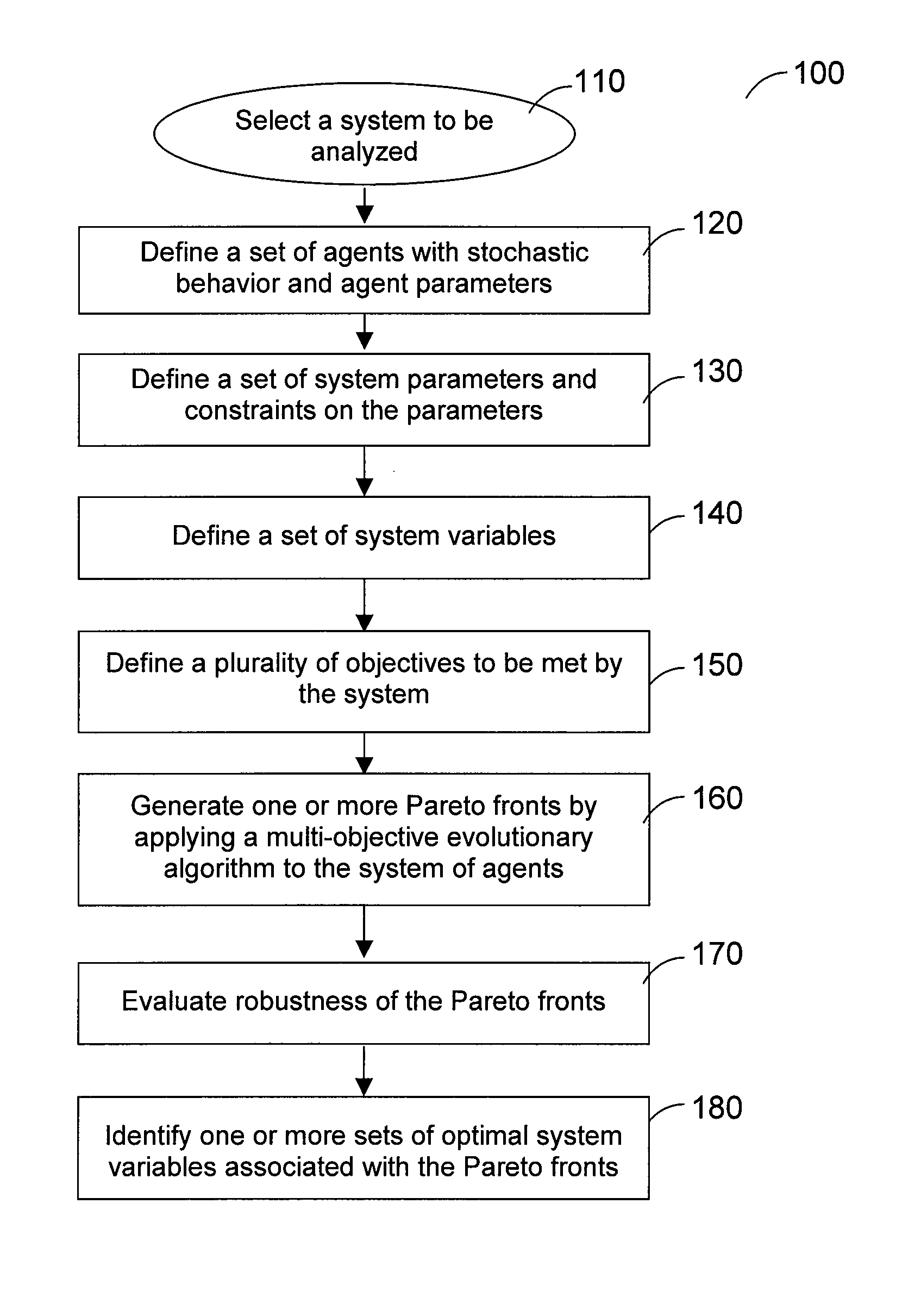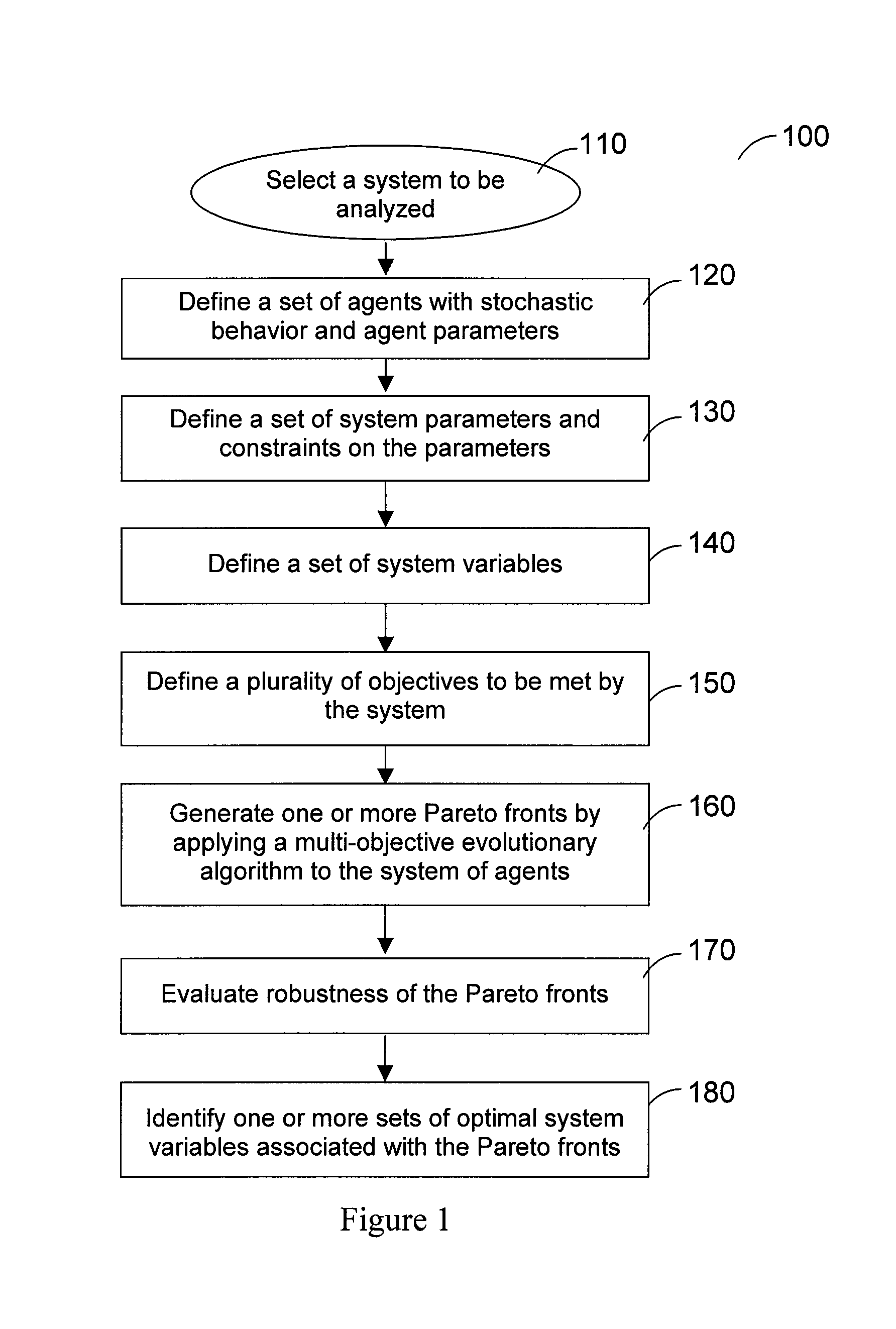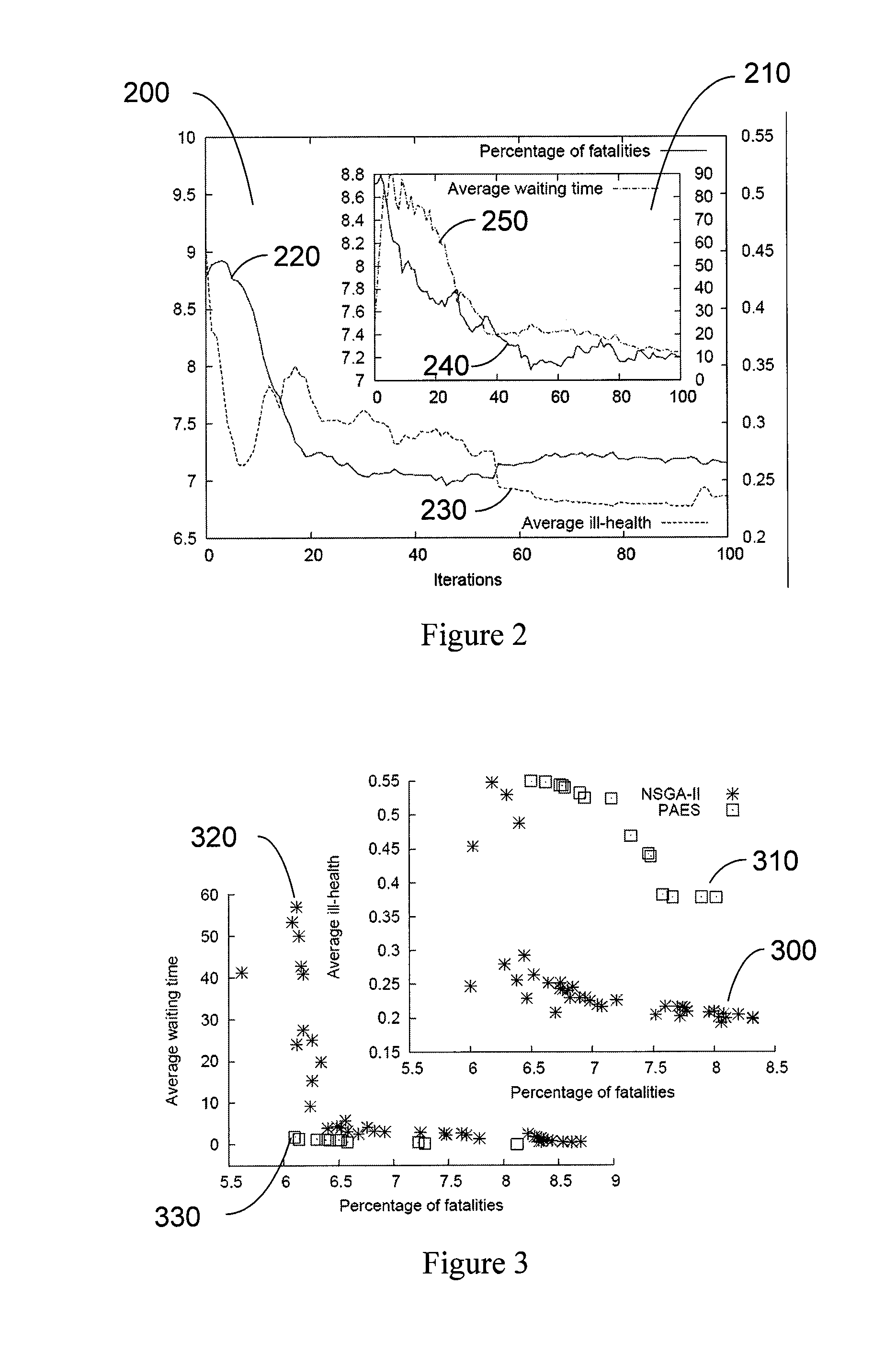System, method, and computer-accessible medium for providing a multi-objective evolutionary optimization of agent-based models
a technology of agent-based models and computer-accessible media, applied in the field of methods, systems and computer-accessible media for optimizing systems of interacting boundedly rational agents, can solve the problems of complex dynamics of multi-agent systems, unpredictable emergent behaviors, and inability to analyze and account for their behavior, and the global effects of such behavior in a system not always apparent or easy to achiev
- Summary
- Abstract
- Description
- Claims
- Application Information
AI Technical Summary
Benefits of technology
Problems solved by technology
Method used
Image
Examples
Embodiment Construction
[0013]According to exemplary embodiments of the present invention, a system, method, and computer-accessible medium can be provided for determining or controlling certain parameters associated with a complex system involving societies of boundedly rational agents exhibiting probabilistic and / or stochastic rules of behavior to produce an optimal outcome, where a global dynamic of such system can be evaluated by different and optionally conflicting objectives or criteria.
[0014]Exemplary embodiments of the present invention can be used to integrate two disparate technologies, agent-based modeling and evolutionary multi-objective optimization, such that the problem of finding “good” and / or “robust” controllable or selectable system parameters (e.g., emergency response plans for public safety) can be cast as a multi-objective optimization problem (“MOOP”). Such problem can be quantitatively analyzed to determine optimal system parameters which are most likely to produce desirable goals b...
PUM
 Login to View More
Login to View More Abstract
Description
Claims
Application Information
 Login to View More
Login to View More - R&D
- Intellectual Property
- Life Sciences
- Materials
- Tech Scout
- Unparalleled Data Quality
- Higher Quality Content
- 60% Fewer Hallucinations
Browse by: Latest US Patents, China's latest patents, Technical Efficacy Thesaurus, Application Domain, Technology Topic, Popular Technical Reports.
© 2025 PatSnap. All rights reserved.Legal|Privacy policy|Modern Slavery Act Transparency Statement|Sitemap|About US| Contact US: help@patsnap.com



